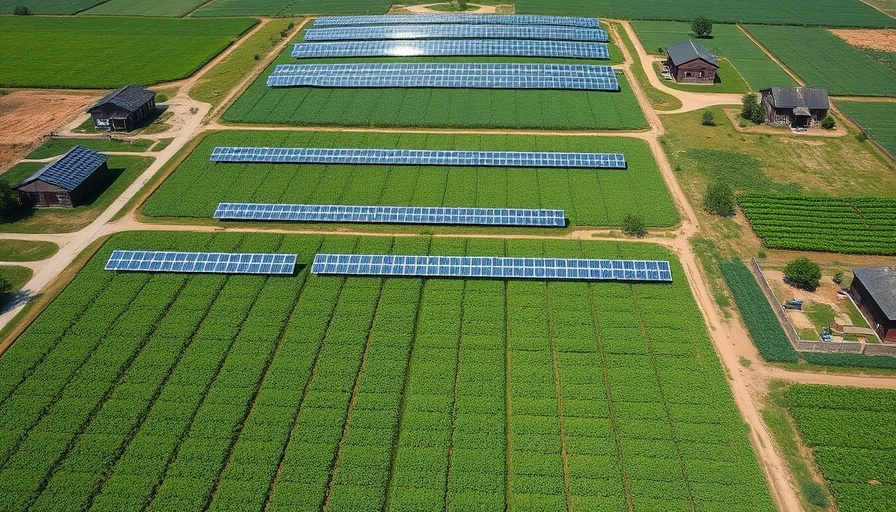
Concerns Over Herbicides in India’s Expanding Solar Landscape
As India rapidly scales its solar energy initiatives, particularly in Tamil Nadu, a significant concern looms large over the reliance on glyphosate-based herbicides for vegetation control. These chemicals pose alarming risks not only to the surrounding ecosystems but also to human health, raising questions about the true cost of renewable energy in this context.
The Local Experience: Health Risks and Community Impact
Communities adjacent to newly established solar parks like the one in Tiruppur are expressing growing unease. Residents such as Vanathi, a local from Nallamapuram Colony, report a persistent and unpleasant smell during herbicide spraying days. More pressing is the fear that these chemicals could leach into their water supply, potentially harming children who play outdoors. The thin border separating the solar park and the colony barely shields them from the looming effects of chemical exposure, which raises concerns about long-term health impacts and environmental degradation.
Regulatory Gaps and the Environmental Cost
Environmental advocates, alongside local political figures like Karthikeya Sivasenapathy, stress the need for stricter regulations surrounding herbicide use in solar energy projects. While solar power is often hailed as a sustainable solution to climate change, the lack of an Environmental Impact Assessment on solar farms is a glaring oversight. Sivasenapathy's call for more responsible practices echoes the sentiments of many who feel that unchecked agricultural methods are at odds with the very principles of environmental conservation.
Moving Towards Sustainable Practices
Fortunately, there are viable alternatives to chemical herbicide application. Mechanical clearing and even innovative practices like solar grazing—using livestock to manage vegetation—can be effective and sustainable options. The pioneers in this field, such as the Sulochana Cotton Spinning Mills, are leading by example, utilizing goats to manage vegetation without the chemical fallout. Embracing such sustainable practices could mitigate health risks while enhancing the environmental integrity of solar parks.
As the debate continues about the future of renewable energy in India, it’s evident that while the transition to solar energy is essential, we must balance these advancements with rigorous ecological stewardship. The journey towards a cleaner future should not come at the expense of community health and environmental well-being. Exploring and investing in sustainable solutions will be critical for truly embracing a green energy revolution.
 Add Row
Add Row  Add
Add 



Write A Comment